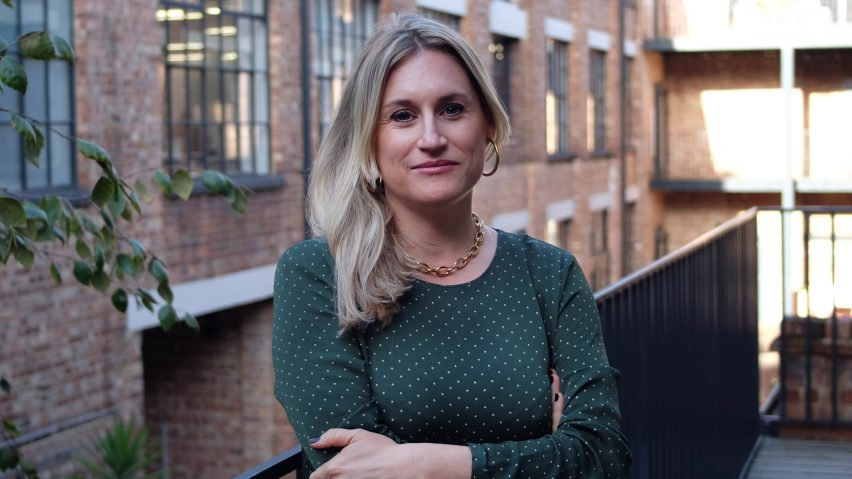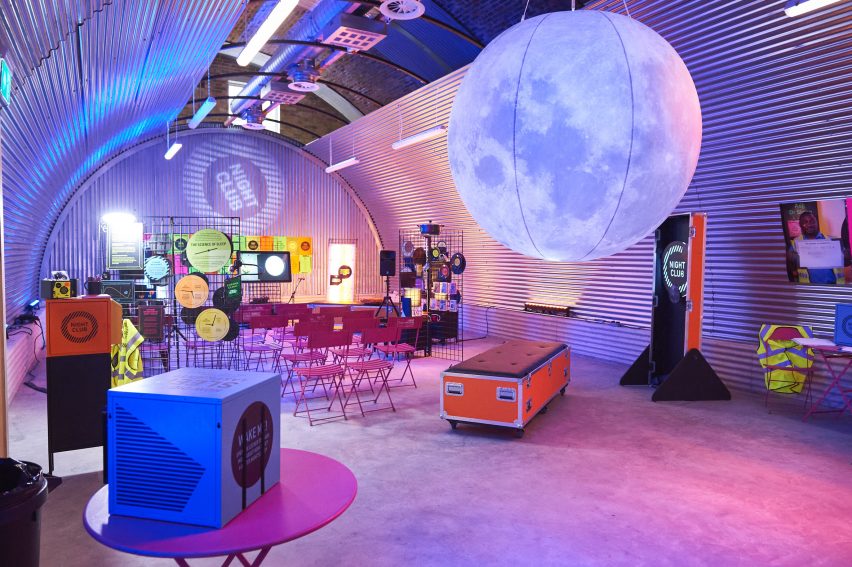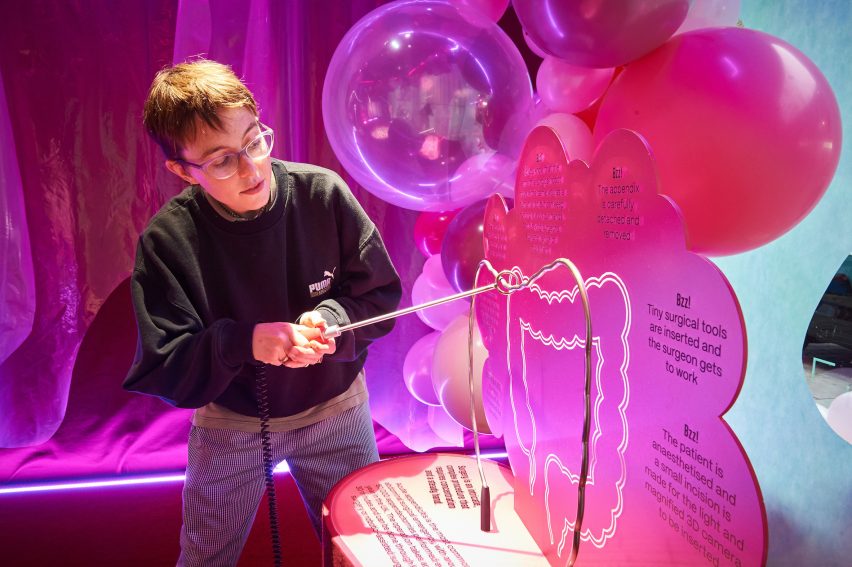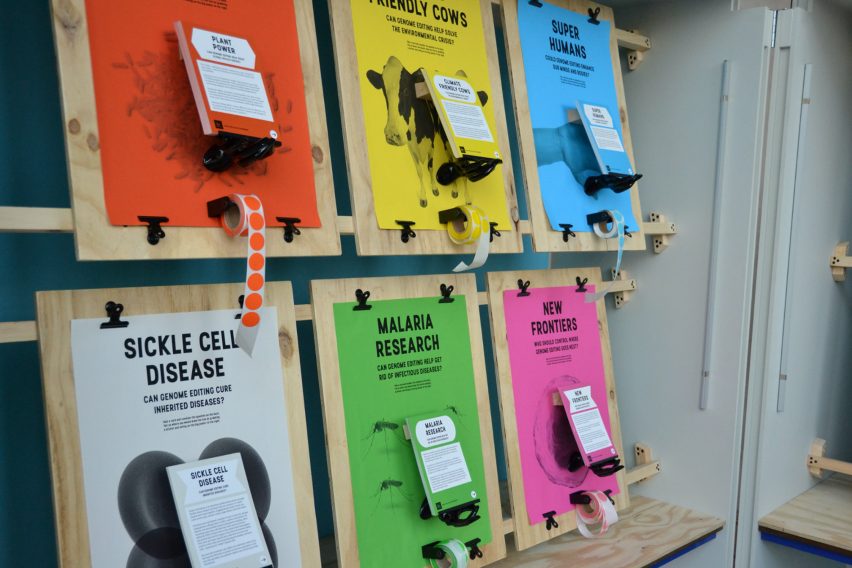
"Design enables you to step into an imagined space" says The Liminal Space co-founder Sarah Douglas
Engaging design has the power to make the future tangible, The Liminal Space co-founder Sarah Douglas tells Dezeen in this interview.
Douglas co-founded London-based creative consultancy The Liminal Space with Sam Livingstone in 2012 and continues to direct the studio together with Livingstone and Amanda Gore.
Since its inception, the studio has tackled a wide range of social issues through its projects, from a mobile-first website designed to help users cope with death to pared-back installations amplifying the stories of young people caught up in crime cycles for the charity SHiFT.
Shortlisted for the emerging design studio title at the 2020 Dezeen Awards, The Liminal Space is known for its cross-disciplinary approach, often enlisting the help of external experts including climate-change scientists and gardeners for its experience design and research work.

"I guess the sort of personal origin story for me is that I've always been really interested in social change and art and design and education," said Douglas, who grew up in South Africa during Apartheid.
"And for me, there's always been an intersection between creativity and social change," she told Dezeen. "Art and design helps to unpack complexity through visual and physical stuff."
Douglas hails from a multifaceted creative background, having practiced as a fine artist, an educator and a design strategist and consultant.
Currently, The Liminal Space is focussed on a number of projects that address the issue of labour and how it will change in the future.
"We're doing quite a lot of work around the future of work, and thinking about that from a social perspective, " Douglas said.
Studio communicates the "conditions of a problem"
An example of one of these projects is The Night Club, an ongoing community engagement project launched in 2018 that includes a travelling installation featured at the 2022 London Design Festival.
The Liminal Space worked with sleep researchers at the University of Oxford to form The Night Club as a hub for night-shift workers to share their experiences. The project's pop-up installation travels to various locations and offers health information in-situ during these workers' shifts.
"There is mounting evidence that [night-shift work] contributes to a number of serious health conditions – from heart disease and diabetes to mental-health issues," said the studio, which has cited the coronavirus pandemic as a contributing factor to increasing numbers of night workers.
Douglas presented the programme's findings in UK parliament at the start of the year and called for action from the government to recognise and support the specific needs of night-shift workers.

"[The Night Club is] all about design as a verb, design as a process, design as a thing, design as an environment," said Douglas, adding that the studio worked closely with night-shift workers over several months when creating the project to better understand their lives.
"It's a whole way of approaching a big social problem. And what we're seeing out of that work is more and more requests to use what The Liminal Space does as a way to communicate to policymakers and to changemakers the kind of 'conditions of a problem'," she continued.
"So I think [the project] has the co-creation element. It has all of the principles that are so important to us, like going to where people themselves are and not expecting them to come to you. It's a travelling, mobile, physical environment."
"Everything to do with the future is so abstract"
Another recent project looking towards the future is In Theatre, which was presented as a free exhibition in east London at the end of last year.
The show explored how artificial intelligence (AI) and robotics can be used in surgery, and presented information on futuristic innovations by medical researchers at University College London who collaborated on the project.
Visitors entered the exhibition through immersive, operating theatre-style curtains and were invited to consider the future of various surgeries within a sequence of designed spaces.
These included the "body zone", a space featuring an interactive pink-and-red ball pit filled with spherical and informative "abnormal cells", as well as a wire-loop children's game shaped like an intestine that encouraged visitors to guide a probe along the intestine, as if completing surgery, to test the steadiness of their hands compared to robots.

"Everything to do with the future is so abstract," considered Douglas, who explained that In Theatre attempted to educate visitors of all ages and backgrounds on the possible future of surgery without bombarding them with dense academic information.
"Design enables you to step into an imagined space and actually just play with what the future might look like."
"Often we'll use visual analogies or objects as metaphors to describe the issue. The best stories show and don't tell and they take you into the heart of the topic through imagination, through narrative, through connecting you with your own memories and with things that are relevant to you," she added.
"The world is in such a challenging space"
Last month, The Liminal Space opened Cut + Paste, another free interactive exhibition with The Francis Crick Institute, which invites visitors to participate in a conversation about the ethics of genome editing.
Among its other current projects is a collaboration with V&A East Storehouse at V&A East, the V&A's new sister space scheduled to open in 2024.
The Liminal Space is designing an experience at V&A East Storehouse aimed at 16-to 24-year-olds that will give local young people "unique" access to the museum's extensive archive of artefacts.
"Museums are sites of learning and engagement," said Douglas, who explained that the project will attempt to tackle barriers to access in the museum sector – an issue highlighted in the studio's 2020 report Mindsets for Museums of the Future.
"They are social spaces that help us to build connections with each other and the world around us, but instead they can often feel exclusive and inaccessible – particularly to the local communities around them."

"The way we describe ourselves is somewhere between an art and design studio and a think tank," reflected Douglas.
"Fundamentally, the world is in such a challenging space. All the challenges we face are so complex, so multi-layered, so multifactorial and intersectional, you really do need to have a hive mind of different skills, mindsets, approaches and experiences in the room together, working together," she added.
"So I think, you know, for me, collaboration has got to be the way forward."
Cut + Paste is on display at The Francis Crick Institute from 11 February to 2 December 2023. See Dezeen Events Guide for an up-to-date list of architecture and design events taking place around the world.
The images are courtesy of The Liminal Space.